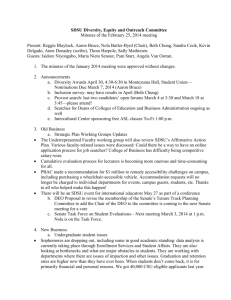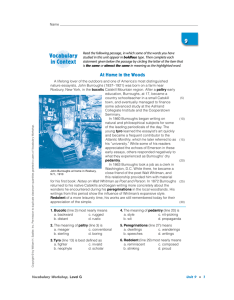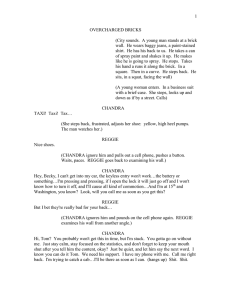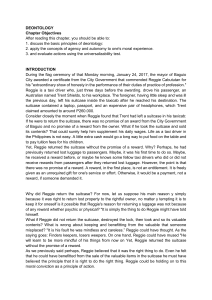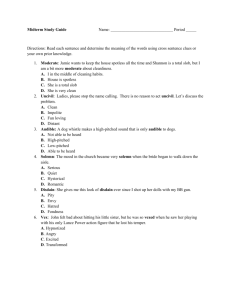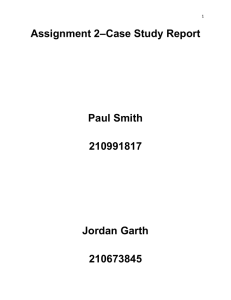Regina Tarlow Kriss
advertisement
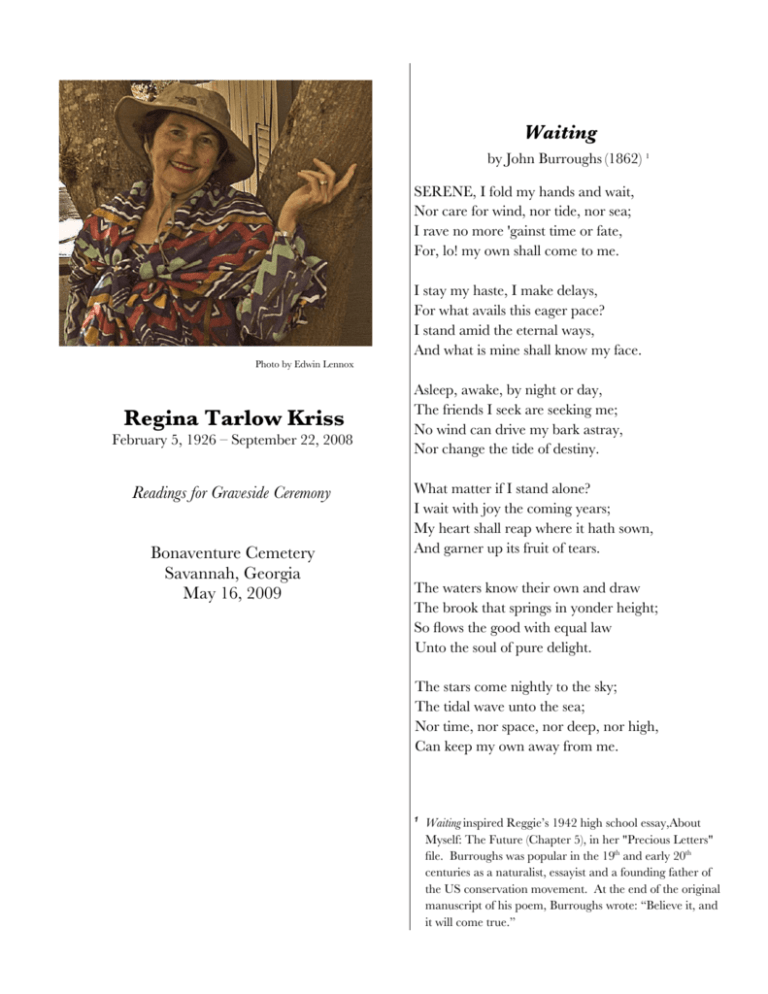
Waiting by John Burroughs (1862) 1 SERENE, I fold my hands and wait, Nor care for wind, nor tide, nor sea; I rave no more 'gainst time or fate, For, lo! my own shall come to me. I stay my haste, I make delays, For what avails this eager pace? I stand amid the eternal ways, And what is mine shall know my face. Photo by Edwin Lennox Regina Tarlow Kriss February 5, 1926 – September 22, 2008 Readings for Graveside Ceremony Bonaventure Cemetery Savannah, Georgia May 16, 2009 Asleep, awake, by night or day, The friends I seek are seeking me; No wind can drive my bark astray, Nor change the tide of destiny. What matter if I stand alone? I wait with joy the coming years; My heart shall reap where it hath sown, And garner up its fruit of tears. The waters know their own and draw The brook that springs in yonder height; So flows the good with equal law Unto the soul of pure delight. The stars come nightly to the sky; The tidal wave unto the sea; Nor time, nor space, nor deep, nor high, Can keep my own away from me. 1 Waiting inspired Reggie’s 1942 high school essay,About Myself: The Future (Chapter 5), in her "Precious Letters" file. Burroughs was popular in the 19th and early 20th centuries as a naturalist, essayist and a founding father of the US conservation movement. At the end of the original manuscript of his poem, Burroughs wrote: “Believe it, and it will come true.” The River-Merchant’s Wife Psalm 23 by Li Po (translated by Ezra Pound) 2 King James Version 3 While my hair was still cut straight across my forehead I played about the front gate, pulling flowers. You came by on bamboo stilts, playing horse, You walked about my seat, playing with blue plums. And we went on living in the village of Chokan: Two small people, without dislike or suspicion. At fourteen I married My Lord you. I never laughed, being bashful. Lowering my head, I looked at the wall. Called to, a thousand times, I never looked back. The LORD is my shepherd; I shall not want. At fifteen I stopped scowling, I desired my dust to be mingled with yours Forever and forever and forever. Why should I climb the look out? Thou preparest a table before me in the presence of mine enemies: thou anointest my head with oil; my cup runneth over. At sixteen you departed, You went into far Ku-to-en, by the river of swirling eddies, And you have been gone five months. The monkeys make sorrowful noise overhead. He maketh me to lie down in green pastures: he leadeth me beside the still waters. He restoreth my soul: he leadeth me in the paths of righteousness for his name's sake. Yea, though I walk through the valley of the shadow of death, I will fear no evil: for thou art with me; thy rod and thy staff they comfort me. Surely goodness and mercy shall follow me all the days of my life: and I will dwell in the house of the LORD forever. 3 You dragged your feet when you went out. By the gate now, the moss is grown, the different mosses, Too deep to clear them away! The leaves fall early this autumn, in wind. The paired butterflies are already yellow with August Over the grass in the West garden; They hurt me. I grow older. If you are coming down through the narrows of the river Kiang, Please let me know beforehand, And I will come out to meet you As far as Cho-fu-Sa. 2 Reggie read The River-Merchant's Wife to Eric when her father Milton Tarlow died. It is a favorite from Eric’s childhood, and was one of several poems suggested by Reggie for this occasion in her “Burial Readings” file. Psalm 23 also was suggested by Reggie for this occasion in her “Burial Readings” file. During her illness, Reggie asked Ed to read it to her and he did so from her old bible. Long tradition ascribes authorship of the psalm to King David. It is read at cemetery funeral services held during Jewish holidays.

